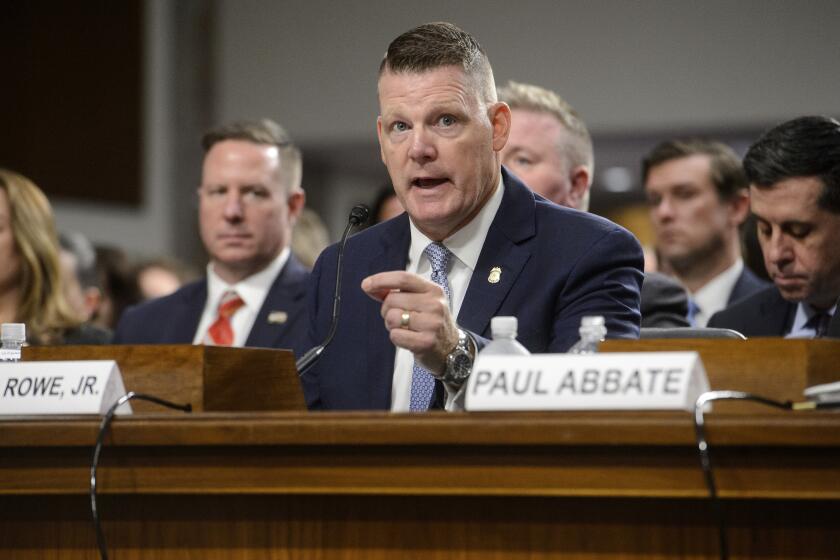No Chance for On-Time Budget: Dole : Blames Split in GOP, White House Failure to Enter Negotiations
Senate Majority Leader Bob Dole said today that a split among Republican senators and a lack of White House involvement have doomed any chance for Congress to pass a fiscal 1987 budget by its April 15 deadline.
“I’ve got about half of my Republicans for the budget resolution reported by the Budget Committee and about half opposed to it,” Dole said on ABC-TV’s “Good Morning America” program. “So I’m in the process of trying to find a little better solution. . . .
“The White House has to be a player,” the Kansas Republican said. “They can’t sit on the sidelines as they did last year and expect us to produce a budget.”
Dole also warned that if the White House is “serious about tax reform, they better start talking to us about the budget process,” reflecting a widespread feeling in the Senate that deficit reduction is the higher priority.
Public Hearing
Sen. Bob Packwood (R-Ore.), chairman of the Finance Committee, sought to remove one obstacle in the way of tax overhaul by agreeing to a public hearing April 21 on his proposal to increase excise taxes on tobacco, alcohol and fuel. A majority of the Senate had demanded the hearings on the proposal, which would finance major changes in the income-tax system.
Congress falls behind schedule every year in writing a budget. But this time some congressional leaders are worried. They fear the Gramm-Rudman deficit reduction law, and fear that many lawmakers and the Reagan Administration aren’t fearful enough.
“This is a whole different ballgame,” said Sen. Pete V. Domenici (R-N.M.), chairman of the Senate Budget Committee.
What makes this year different is the timetable set by the Gramm-Rudman law, including the April 15 deadline for passing the budget. Unless Congress and the President approve the spending cuts and tax increases needed to reduce the fiscal 1987 deficit to $144 billion, automatic spending cuts will strike across-the-board on Oct. 1.
A limited, first-year Gramm-Rudman cut took effect March 1, trimming $11.7 billion from fiscal 1986 spending.
‘One Dose’
“We had the one dose of Gramm-Rudman. That caught everybody’s attention,” Dole said. “We said we’d not let it happen again.”
Gramm-Rudman was designed to force discipline upon a Congress loathe to decide between new taxes and painful spending cuts. And there were early signs it was working--such as when the Senate Budget Committee on March 19 passed a bipartisan plan to meet the deficit target.
But the committee budget came under attack by the White House because it would cut the President’s fiscal 1987 military spending request by $25 billion and add $12 billion in taxes to Reagan’s budget.
More to Read
Get the L.A. Times Politics newsletter
Deeply reported insights into legislation, politics and policy from Sacramento, Washington and beyond. In your inbox three times per week.
You may occasionally receive promotional content from the Los Angeles Times.






